Smart Scales for Health and Fitness Tracking
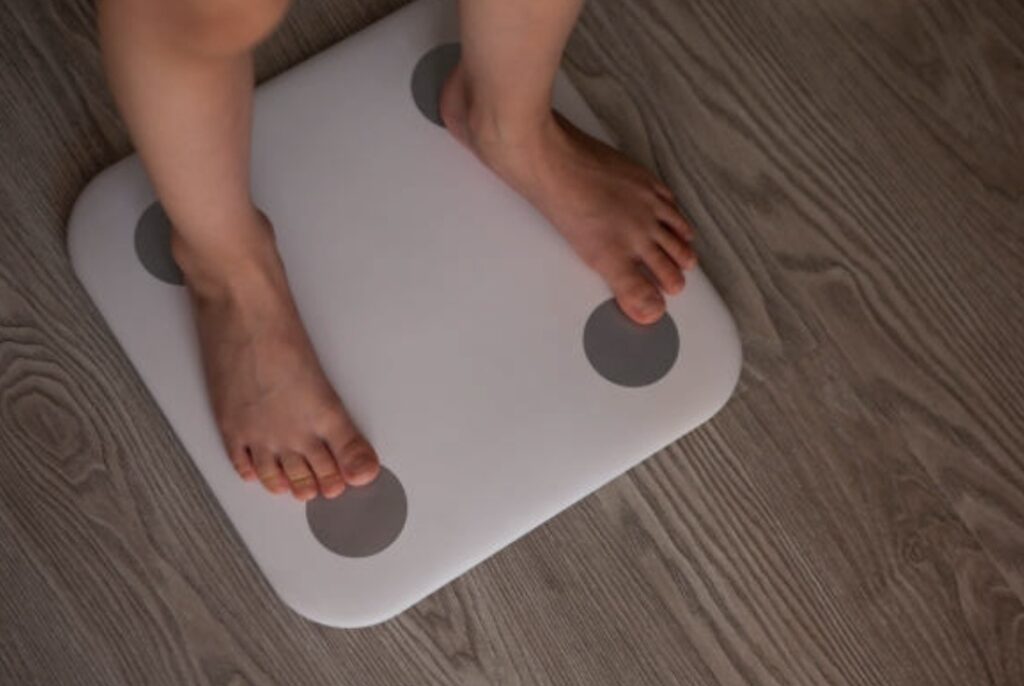
The Evolution of Health and Fitness Tracking
Staying healthy has always been a priority, but how we track and monitor our fitness has drastically evolved over the years.
In the past, people relied on basic weight scales, fitness journals, and calorie counting by hand to track their progress.
While these methods worked to some extent, they lacked precision and real-time feedback.
Traditional weight scales only provided a single metric—body weight—without giving insights into body composition, muscle mass, or fat percentage.
With advancements in technology and the rise of digital health solutions, fitness tracking has transformed significantly.
Wearable devices like Fitbit, Apple Watch, and Garmin smartwatches have revolutionized how people monitor their steps, heart rate, and sleep patterns.
Similarly, smart scales have taken health tracking to the next level by offering comprehensive body composition analysis, Bluetooth and Wi-Fi connectivity, and seamless integration with health apps.
Today, the benefits of smart scales go beyond simple weight measurement.
These high-tech devices provide users with detailed insights into their body fat percentage, muscle mass, water content, and even bone density.
With this level of precision, people can make data-driven decisions about their fitness journey and achieve their health goals faster.
The shift from manual tracking to smart, AI-powered health monitoring has empowered individuals to take control of their well-being.
As more people prioritize holistic health tracking, the demand for smart scales continues to grow.

What Are Smart Scales and Why Are They Gaining Popularity?
A smart scale is not just a regular bathroom scale—it’s an advanced health and fitness tracking device designed to measure much more than just weight.
Unlike traditional scales that only tell you how much you weigh, smart scales use Bioelectrical Impedance Analysis (BIA) technology to measure various body composition metrics.
This technology sends a low electrical current through the body to analyze factors such as body fat percentage, muscle mass, bone density, and hydration levels.
But what makes smart scales increasingly popular? Here are some of the key reasons:
1. Comprehensive Health Insights
People no longer want to focus solely on their weight. Understanding body fat percentage, muscle mass, and metabolic age provides a more accurate picture of overall health.
2. Seamless Integration with Health Apps
Most smart scales sync with popular health apps like Apple Health, Google Fit, Fitbit, and MyFitnessPal to provide a centralized view of your fitness data. This makes it easier to track progress over time.
3. Precision and Accuracy in Measurements
Unlike traditional weighing scales that fluctuate based on factors like clothing and food intake, smart scales offer more consistent and precise measurements that help users make informed health decisions.
4. Motivation and Accountability
Seeing real-time data and tracking progress keeps users motivated. Some smart scales also allow multiple users to track their progress, making them ideal for families or fitness groups.
5. Growing Interest in Data-Driven Fitness
With fitness enthusiasts, athletes, and even doctors relying on data to assess health, smart scales provide a scientific approach to weight management and fitness tracking.
6. Smart Features and AI-Driven Insights
Advanced smart scales offer AI-based insights, metabolic age predictions, and even heart rate monitoring to provide a full-spectrum health analysis.
As people become more health-conscious and rely on data-backed decisions, the benefits of smart scales are making them an essential health and fitness tool in modern households.
If you’re serious about tracking your health beyond just weight, investing in a smart scale could be a game-changer for your wellness journey.
What Are Smart Scales?
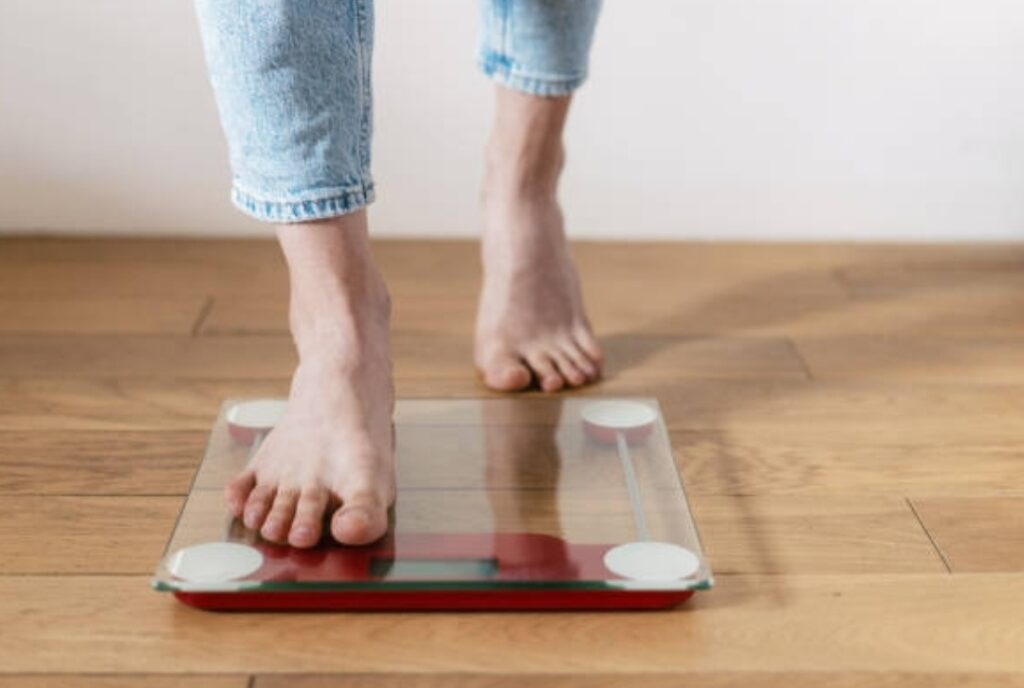
Definition and Basic Functionality of Smart Scales
A smart scale is a high-tech version of a traditional bathroom scale, designed to provide far more than just a simple weight measurement.
Unlike conventional scales, smart scales use advanced sensors and bioelectrical impedance analysis (BIA) technology to measure various aspects of body composition, including body fat percentage, muscle mass, bone density, hydration levels, and more.
These devices connect to smartphone apps, fitness trackers, and health monitoring platforms via Wi-Fi or Bluetooth, allowing users to track their progress over time with greater accuracy.
Key Features of Smart Scales:
- Multi-Metric Body Composition Analysis – Measures more than just weight, providing insights into body fat, muscle mass, and metabolic rate.
- Seamless Connectivity – Syncs with Apple Health, Google Fit, Fitbit, and MyFitnessPal for centralized tracking.
- User Recognition Technology – Can identify multiple users automatically, making it ideal for families.
- AI and Data Analytics – Some smart scales offer AI-driven insights that help users understand trends in their health data.
- Goal Tracking and Custom Recommendations – Provides personalized insights based on weight loss, muscle gain, or fitness improvement objectives.
Because of these features, the benefits of smart scales extend far beyond weight measurement, helping users make more data-driven decisions about their health and fitness journey.
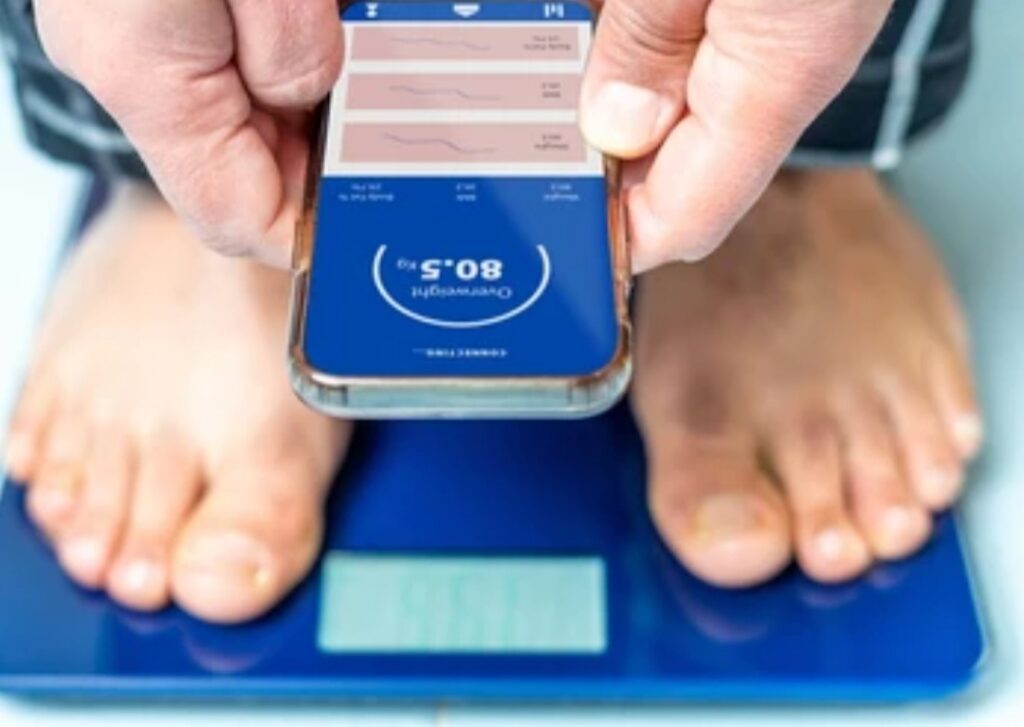
How Smart Scales Work: Bioelectrical Impedance Analysis (BIA) Technology
Most smart scales use Bioelectrical Impedance Analysis (BIA) technology, a scientific method for measuring body composition.
How Does BIA Technology Work?
- When you step on a smart scale, it sends a low-level electrical current through your body.
- This current travels through muscle, fat, and water at different speeds.
- Muscle and water conduct electricity faster than fat because they contain more water.
- Fat resists electrical flow more than muscle, so the scale calculates body fat percentage based on resistance.
- Muscle and water conduct electricity faster than fat because they contain more water.
- The scale’s sensors analyze the resistance and estimate body composition metrics, including:
- Body fat percentage
- Muscle mass
- Bone density
- Visceral fat levels
- Hydration levels
- Body fat percentage
Why Is BIA Technology Important for Health Tracking?
- Traditional scales only measure weight, but weight alone is not an accurate indicator of health.
- BIA-based smart scales provide a complete picture of body composition, allowing users to track changes in fat loss and muscle gain.
- It helps individuals set more effective fitness goals based on body fat percentage rather than just weight loss.
Factors That Can Affect BIA Accuracy:
Although BIA technology is highly effective, its accuracy can be influenced by various factors, such as:
- Hydration Levels – Dehydration can increase body fat percentage readings, while drinking too much water before weighing may lower it.
- Meal Timing – Eating right before stepping on the scale can slightly alter results.
- Skin Contact – Standing with wet feet or lotion on the skin may impact the electrical conductivity and affect measurements.
- Physical Activity – Post-workout measurements may show temporary fluctuations due to water loss.
By understanding how smart scales work, users can ensure consistent and accurate readings by measuring at the same time each day, preferably in the morning before eating or exercising.
Key Benefits of Smart Scales for Health and Fitness Tracking
Smart scales are revolutionizing health tracking by providing detailed body composition analysis, accurate weight measurements, and seamless integration with fitness apps.
Unlike traditional weighing scales that only display body weight, smart scales offer a complete health overview, making them an essential tool for anyone serious about weight management, muscle building, or overall wellness.
Below, we explore the benefits of smart scales and why they are a game-changer for fitness tracking.
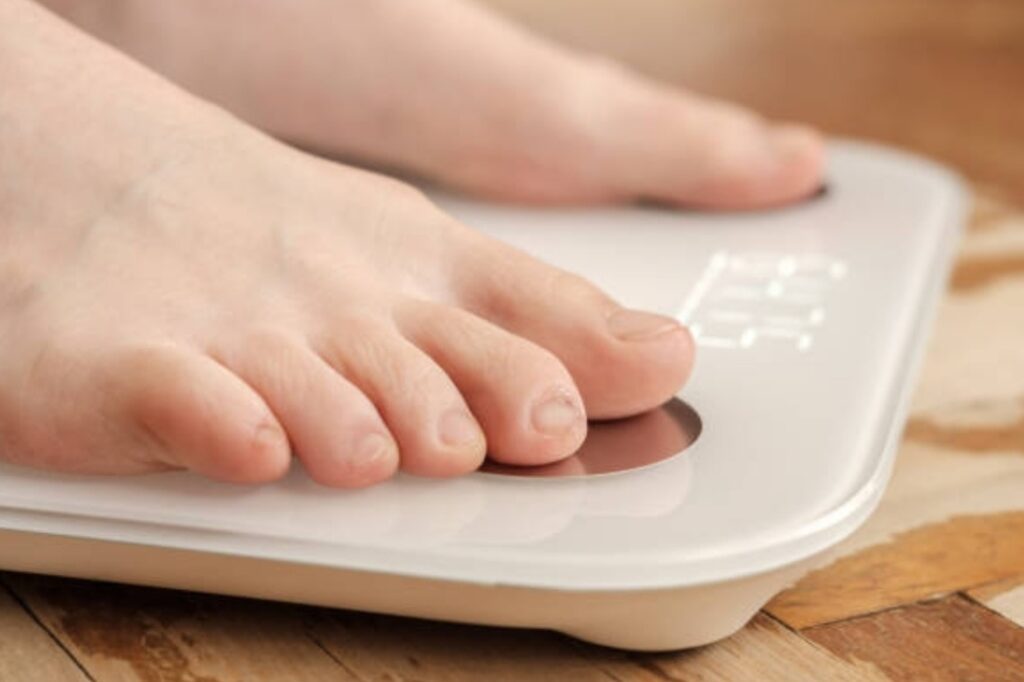
Comprehensive Body Composition Analysis
More Than Just Weight Measurement
One of the biggest advantages of smart scales is that they measure much more than just weight.
With advanced sensors and bioelectrical impedance analysis (BIA) technology, these devices provide a detailed breakdown of body composition, including:
✅ Body Fat Percentage – Essential for tracking fat loss rather than just weight loss.
✅ Muscle Mass – Helps users understand muscle growth and maintain lean body mass.
✅ Bone Density – Important for monitoring bone health, especially for older adults.
✅ Water Content – Ensures proper hydration levels, which impact metabolism and performance.
✅ Visceral Fat Levels – Indicates the amount of fat stored around internal organs, a key factor in heart health.
Why These Metrics Matter
Measuring weight alone is not enough to assess overall health. A person with a high muscle mass may weigh more than someone with higher body fat, but that does not mean they are unhealthy.
By using a smart scale, individuals can:
✔ Identify fat loss vs. muscle loss – This ensures weight loss is healthy and not due to muscle depletion.
✔ Track fitness progress effectively – See how muscle mass increases while fat percentage decreases.
✔ Monitor hydration levels – Proper hydration is crucial for metabolism, energy levels, and muscle function.
✔ Prevent health risks – High visceral fat levels are linked to diabetes, heart disease, and metabolic disorders.
With real-time body composition tracking, the benefits of smart scales make them an indispensable tool for fitness enthusiasts, athletes, and individuals seeking better health insights.
Accurate and Consistent Measurements
Why Accuracy Matters in Fitness Tracking
One of the most frustrating aspects of traditional scales is their inconsistency.
Weight readings can fluctuate daily due to factors like water retention, food intake, and even the time of day.
Smart scales, however, use high-precision sensors to ensure that measurements remain consistent and accurate over time.
How Smart Scales Improve Accuracy
💡 BIA Technology – Measures body composition with greater precision than standard weighing methods.
💡 Multiple Sensors – High-quality smart scales have advanced pressure sensors to detect subtle weight changes.
💡 Data Synchronization – Smart scales track long-term trends rather than just daily fluctuations.
Ensuring Reliable Measurements
To get the most accurate and reliable results, users should follow these guidelines:
➡ Weigh yourself at the same time each day – Preferably in the morning before eating or drinking.
➡ Place the scale on a hard, flat surface – Carpets or uneven floors can distort readings.
➡ Ensure feet are clean and dry – Wet skin can affect BIA readings.
➡ Stay consistent with measurement conditions – Avoid weighing yourself right after workouts or meals.
By following these steps, users can maximize the accuracy of their smart scale readings and make better health decisions based on data-driven insights.
Seamless Integration with Health Apps
Why App Connectivity is a Game-Changer
Smart scales are more than just standalone devices. They sync with fitness and health tracking apps, allowing users to view their progress in one convenient place.
By integrating with these apps, users can:
✔ Monitor trends over time – See weight fluctuations, fat loss, and muscle gain in easy-to-read charts.
✔ Set and achieve goals – Track fitness milestones based on specific body composition changes.
✔ Get personalized health recommendations – Some apps offer AI-powered health insights based on data.
Compatible Health and Fitness Apps
Many top-rated smart scales work with popular health-tracking platforms, including:
📱 Apple Health – Ideal for iPhone users who track fitness and wellness data.
📱 Google Fit – Syncs weight, BMI, and body composition with Android devices.
📱 Fitbit – Works alongside Fitbit trackers for a complete fitness overview.
📱 MyFitnessPal – Helps users track calories and weight trends simultaneously.
📱 Samsung Health – Provides detailed body metrics analysis.
The Power of Connected Health Tracking
With smart scale app integration, users can automate their fitness tracking and get a more holistic view of their progress.
This eliminates the need for manual logging, making it easier to stay consistent and motivated on a health journey.

Personalized Goal Setting and Progress Monitoring
Utilizing Data to Set Realistic Health and Fitness Goals
One of the most powerful benefits of smart scales is their ability to provide personalized data insights that help users set realistic and achievable health goals.
Rather than just focusing on a number on the scale, smart scales allow users to track multiple health metrics, enabling them to:
✔ Set goals based on body composition changes (e.g., reducing body fat percentage rather than just losing weight).
✔ Monitor muscle gain while ensuring they maintain or improve their overall body strength.
✔ Stay on top of hydration levels, which is crucial for metabolism and overall health.
✔ Track metabolic changes over time, ensuring that fitness routines and diets are optimized for better results.
Setting the right health goals is critical for long-term success. Smart scales eliminate guesswork by providing accurate, science-backed measurements that guide users toward real, measurable progress.
How Smart Scales Help in Goal Achievement
Smart scales don’t just measure progress—they help users analyze and interpret their health trends:
📊 Data-Driven Decisions – Users can make informed adjustments to diet, exercise, and hydration based on real-time feedback.
📊 Custom Goal Tracking – Many smart scales integrate with fitness apps to help users set and modify their goals over time.
📊 Weekly and Monthly Progress Insights – Instead of daily fluctuations, smart scales focus on long-term trends that matter most.
By using a smart scale, individuals can set fitness goals that are both attainable and sustainable, ensuring long-term health improvements rather than short-term fixes.
Enhanced Motivation and Accountability
Visualizing Progress Through Data Analytics
One of the biggest reasons people lose motivation in their fitness journey is the lack of visible progress.
Traditional weighing scales often cause frustration because weight fluctuates daily due to factors like water retention, digestion, and hormonal changes.
Smart scales solve this problem by:
🔹 Providing graphical representations of progress rather than just numbers.
🔹 Showing long-term improvements, helping users see the bigger picture.
🔹 Highlighting key metrics beyond weight, such as body fat percentage, muscle mass, and BMI trends.
By visualizing data trends, users stay motivated and better understand their progress, even when the numbers on the scale don’t seem to change significantly.
Sharing Achievements for Accountability
Motivation often increases when progress is shared with others.
Smart scales allow users to:
✔ Share progress with personal trainers or healthcare professionals, ensuring expert guidance.
✔ Join online fitness communities where members can encourage each other.
✔ Compare progress with family or friends for extra motivation.
This social aspect of smart scales makes fitness tracking more engaging and rewarding, ensuring that users stay consistent with their goals.

Multi-User Functionality
Smart Scales for the Whole Family
One of the underrated features of smart scales is multi-user functionality, which makes them perfect for:
🏡 Families who want to track their health together.
🏢 Shared living spaces where multiple users need personalized readings.
💑 Couples working towards fitness goals together.
How Multi-User Smart Scales Work
Most smart scales automatically recognize different users based on their weight and body composition.
Once set up, each user can have their own profile, allowing them to:
✔ Track personal health data separately without interfering with other users’ information.
✔ Monitor trends unique to their own fitness journey.
✔ Sync their personal results with their preferred health apps.
For households where multiple people want to stay on top of their health, multi-user smart scales provide a convenient and effective solution.
Additional Features and Specialized Modes
Advanced Modes for Specific User Needs
Smart scales are not just for general fitness tracking. Many modern smart scales include special modes to cater to specific user groups:
👶 Infant Mode – Allows parents to track their baby’s growth and weight development.
🤰 Pregnancy Mode – Helps expectant mothers monitor weight gain safely while providing essential pregnancy health insights.
🏋 Athlete Mode – Designed for high-performance individuals who need advanced muscle and fat analysis.
Innovative Features for Deeper Health Insights
Beyond standard body composition measurements, many smart scales offer additional features that enhance overall health tracking:
📡 Heart Rate Monitoring – Helps users track their resting heart rate and detect irregularities.
🔥 Metabolic Age Assessment – Compares body composition against age-related averages to assess metabolic efficiency.
📊 Visceral Fat Analysis – Determines how much fat is stored around internal organs, which is key for cardiovascular health.
These advanced features make smart scales a comprehensive health-tracking tool, far beyond just measuring weight.
Considerations and Limitations of Smart Scales

Accuracy Concerns and Factors Affecting Measurements
While smart scales offer cutting-edge technology and comprehensive health tracking, it’s important to understand that accuracy can vary depending on multiple factors.
Many users expect perfectly precise readings, but no scale—whether traditional or smart—is 100% accurate all the time.
Several variables can influence the accuracy of smart scale measurements, including:
✔ Hydration Levels – Bioelectrical impedance analysis (BIA) relies on water content in the body. Dehydration or excess water retention can lead to inaccurate readings.
✔ Time of Measurement – Weight and body composition fluctuate throughout the day. Morning weigh-ins, before eating or drinking, provide the most stable data.
✔ Foot Placement and Posture – Uneven weight distribution or improper positioning on the scale can cause slight variations in readings.
✔ Calloused or Dry Feet – Since BIA requires electrical conductivity, dry or rough skin can reduce accuracy.
✔ Body Type Variations – Smart scales use algorithms based on general population data. Individuals with extreme muscle mass or very low body fat may get readings that slightly differ from reality.
✔ Different Brands and Models – Not all smart scales use the same sensors, algorithms, or calibration methods, leading to potential variations across different brands.
How to Ensure More Accurate Readings
To get the most reliable results, follow these best practices:
📌 Weigh yourself at the same time every day, preferably in the morning before eating or drinking.
📌 Use the scale on a flat, hard surface (not on carpet or uneven flooring).
📌 Keep your feet clean and dry to improve BIA conductivity.
📌 Avoid weighing yourself immediately after intense workouts, as exercise can temporarily alter hydration levels and affect readings.
📌 Compare long-term trends instead of focusing on daily fluctuations.
By understanding these factors, users can maximize the benefits of smart scales and interpret their health data more effectively.
Smart Scales as a Complementary Health Tool – Not a Medical Device
Why Smart Scales Shouldn’t Replace Professional Medical Advice
Smart scales provide valuable insights into body composition, but they are not a substitute for professional medical evaluations.
While they can help users track progress, identify trends, and make healthier lifestyle choices, they do not diagnose or treat medical conditions.
Key reasons why professional guidance is still necessary:
🩺 Medical Accuracy vs. Consumer Technology – Smart scales use generalized formulas to estimate body fat percentage and muscle mass. Medical devices like DEXA scans or hydrostatic weighing provide far more precise results.
🩺 Health Conditions That Affect Readings – Certain medical conditions, medications, or pregnancy can alter body composition and lead to misleading results on a smart scale.
🩺 Individualized Health Assessments – Doctors and registered dietitians can provide personalized advice that goes beyond just numbers on a scale.
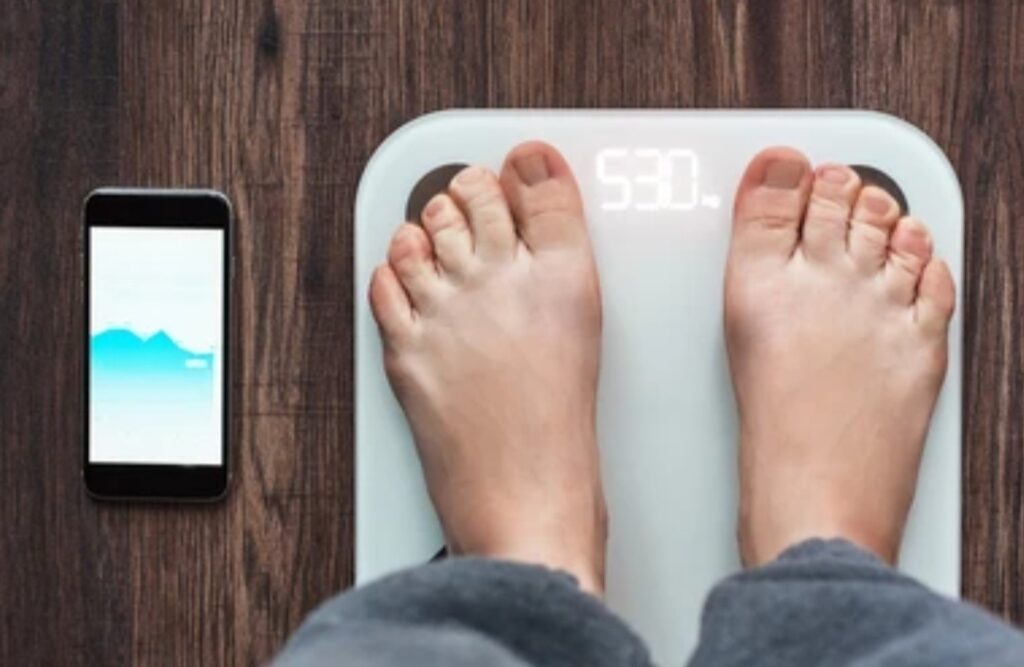
Using Smart Scales Wisely for a Healthier Lifestyle
Smart scales should be viewed as one piece of the health and fitness puzzle, working alongside other health monitoring tools such as:
✔ Regular medical check-ups to assess overall health.
✔ Fitness assessments by personal trainers or health professionals.
✔ Blood tests and metabolic screenings for deeper insights into nutrition and wellness.
Are Smart Scales Worth It?
Despite their limitations, the benefits of smart scales far outweigh the drawbacks—as long as they are used correctly.
They are powerful tools for tracking trends, setting fitness goals, and staying motivated, but users should combine their data with professional guidance for the best results.
💡 Ready to Take Control of Your Health?
➡ Check Out the Best Smart Scales for Accurate Body Tracking ⬅
Tips for Choosing the Right Smart Scale
Choosing the best smart scale requires more than just picking the most expensive or feature-packed model.
Here’s what to consider before making a purchase.
The right smart scale should align with your personal health and fitness goals, integrate seamlessly with your preferred health-tracking apps, and provide consistent, accurate readings.

Key Features to Look for Based on Individual Health Goals
1. Comprehensive Body Composition Analysis
A basic digital scale only measures weight, but a high-quality smart scale should track multiple metrics, including:
✔ Body Fat Percentage – Helps monitor fat loss versus muscle gain.
✔ Muscle Mass – Essential for athletes or those focused on strength training.
✔ Bone Density – Beneficial for older adults or those at risk of osteoporosis.
✔ Water Percentage – Important for tracking hydration levels.
✔ Visceral Fat – Measures the fat stored around internal organs, which affects metabolic health.
📌 Who Needs This?
👉 Fitness enthusiasts, bodybuilders, and individuals tracking weight loss or muscle gain will benefit from smart scales with advanced body composition analysis.
2. High Precision Sensors for Accurate Readings
Not all smart scales are built the same.
To ensure consistent and reliable readings, look for a scale with:
✔ Four or more precision sensors for better weight distribution and accuracy.
✔ Auto-calibration features to prevent fluctuations in weight readings.
✔ Multiple frequency bioelectrical impedance analysis (BIA), which provides more detailed body composition results.
📌 Who Needs This?
👉 Anyone who wants precise tracking over time, especially those focusing on small weight changes for fitness or medical reasons.
3. Seamless App and Smart Device Integration
A top-tier smart scale should sync effortlessly with health apps and devices.
The best smart scales support:
✔ Apple Health, Google Fit, Samsung Health – For seamless tracking across multiple platforms.
✔ Fitness Apps like MyFitnessPal and Fitbit – Ideal for users who track diet and workouts.
✔ Smartwatches and Wearables – For syncing weight data with your smartwatch, helping you get a holistic view of your fitness progress.
📌 Who Needs This?
👉 If you already use fitness apps or a smartwatch, choosing a smart scale with app integration will make tracking data more convenient.
4. Multi-User Recognition for Household Use
If multiple people in your household plan to use the smart scale, multi-user functionality is essential.
✔ Automatic User Recognition – Some scales identify different users based on weight and body composition.
✔ Separate Profiles for Each User – Ensures that each person’s health data remains private and organized.
✔ Baby and Pet Weighing Modes – Some models allow parents to weigh their infants or even small pets.
📌 Who Needs This?
👉 Families, couples, or roommates who want a single smart scale for multiple users.
5. Wi-Fi vs. Bluetooth Connectivity
Smart scales offer two types of connectivity:
✔ Bluetooth Scales – Requires a smartphone nearby to sync data manually.
✔ Wi-Fi Scales – Automatically uploads data to your health app, even if your phone isn’t nearby.
📌 Who Needs This?
👉 Frequent travelers or busy users should opt for a Wi-Fi-enabled scale to avoid manual syncing hassles.
6. Battery Life and Power Options
Smart scales run on either:
✔ Rechargeable lithium-ion batteries – More eco-friendly and cost-effective over time.
✔ AAA or AA batteries – Convenient but may need frequent replacement.
📌 Who Needs This?
👉 If you travel often or want a hassle-free experience, opt for a long-battery-life smart scale.
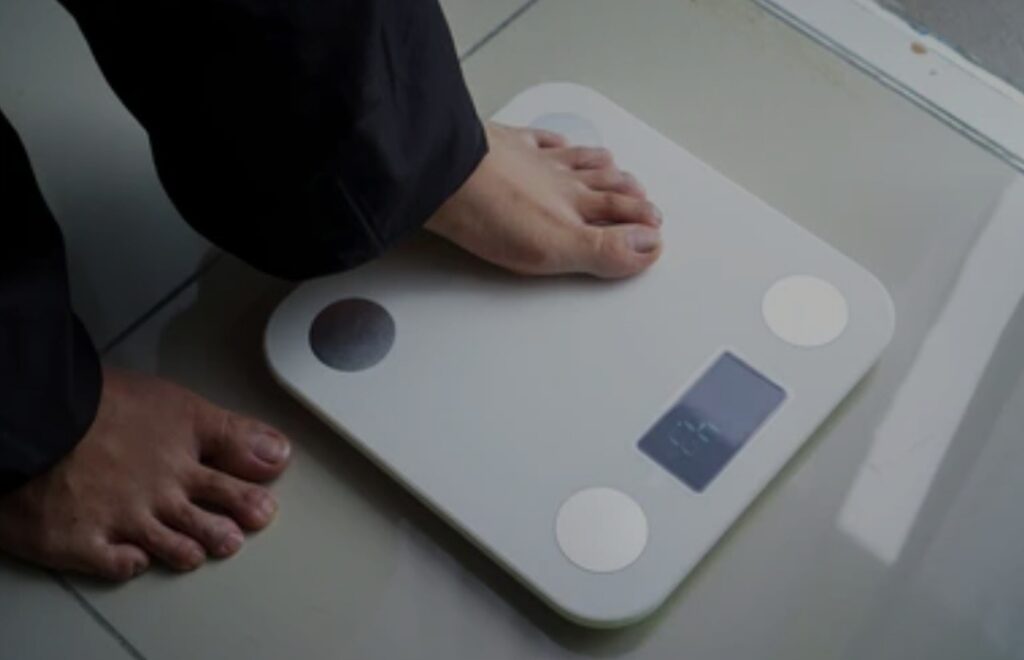
Recommendations for Reputable Smart Scale Brands and Models
Best Smart Scales for All Users
📌 1. Withings Body+ – Best overall smart scale
✔ Tracks weight, body fat, water percentage, and muscle/bone mass.
✔ Wi-Fi & Bluetooth connectivity for seamless data syncing.
✔ Compatible with Apple Health, Google Fit, Fitbit, and MyFitnessPal.
📌 2. RENPHO Premium Smart Scale – Best budget-friendly option
✔ Offers highly accurate body composition analysis.
✔ Affordable and packed with features.
✔ Works with Fitbit, Samsung Health, and Apple Health.
📌 3. Eufy Smart Scale P2 Pro – Best for families
✔ Supports 16 different user profiles.
✔ Baby mode & athlete mode available.
✔ Provides accurate BIA measurements for muscle mass and body fat.
📌 4. Garmin Index S2 – Best for athletes
✔ Advanced multi-frequency BIA for precise body composition analysis.
✔ Syncs with Garmin Connect and other fitness apps.
✔ Ideal for serious athletes tracking performance metrics.
📌 5. Fitbit Aria Air – Best for Fitbit users
✔ Seamless integration with the Fitbit app.
✔ Tracks weight and BMI with a minimalist design.
✔ Perfect for Fitbit smartwatch owners.
Choosing the Right Smart Scale for You
With so many options available, the best smart scale depends on your health goals, lifestyle, and budget.
Before making a purchase, consider:
✅ What features matter most? (Body composition tracking, app integration, Wi-Fi vs. Bluetooth)
✅ Do you need multiple user profiles? (Ideal for families or shared households)
✅ What apps do you use for health tracking? (Make sure your smart scale is compatible)
🔥 Want the best deal on a top-rated smart scale?
➡ Check Out These High-Performance Smart Scales Now! ⬅
Conclusion of Benefits of Smart Scales
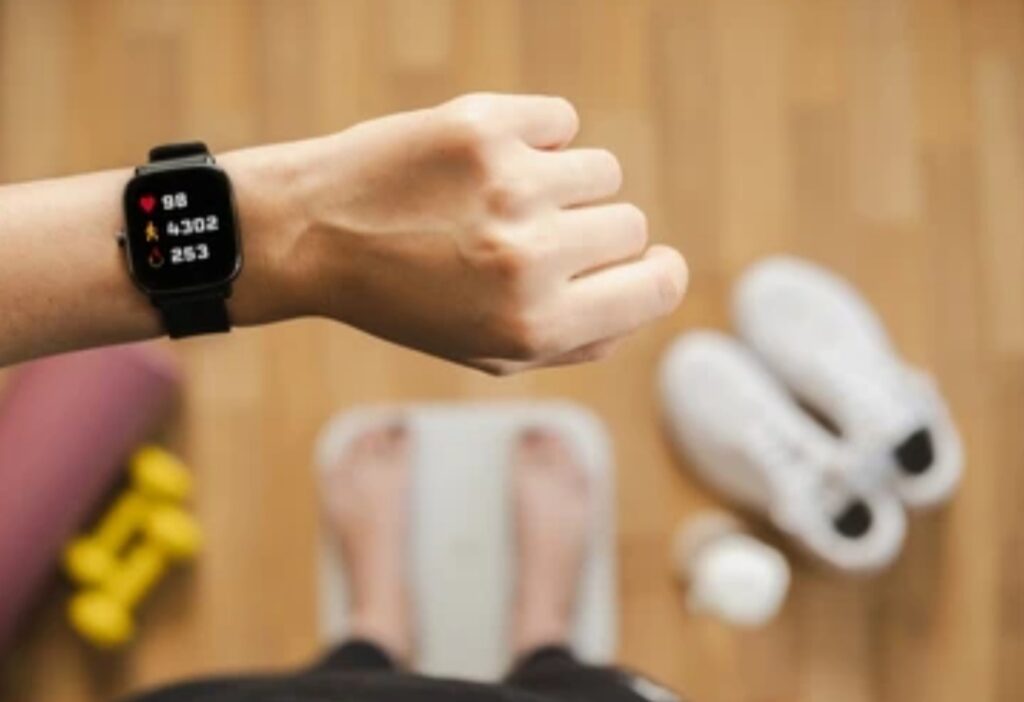
The Transformative Impact of Smart Scales on Personal Health Tracking
Smart scales have revolutionized the way we monitor our health.
Unlike traditional bathroom scales, these intelligent health-tracking devices provide comprehensive insights into body composition, helping users make data-driven decisions about their fitness and well-being.
The benefits of smart scales extend far beyond simple weight measurement.
By tracking body fat percentage, muscle mass, hydration levels, and even metabolic age, users can gain a deeper understanding of their overall health.
This level of detail allows for:
✔ Better weight management – Smart scales help users distinguish between fat loss and muscle gain.
✔ More accurate fitness tracking – Athletes and fitness enthusiasts can monitor progress beyond just the number on the scale.
✔ Improved motivation – Seeing detailed body composition changes can be incredibly encouraging.
✔ Early detection of health issues – Monitoring trends can alert users to potential concerns before they become serious.
By integrating smart scales into daily routines, users can maintain accountability, track trends over time, and stay informed about their body’s changes.
Why You Should Incorporate a Smart Scale Into Your Health Routine
A smart scale is more than just a fitness tool—it’s an essential companion for a healthier lifestyle.
Whether you’re on a weight loss journey, aiming to build muscle, or simply maintaining overall well-being, a smart scale helps you stay on track.
Here’s why it’s time to make the switch:
✔ Personalized Health Insights – Unlike traditional scales, smart scales offer a complete breakdown of body metrics.
✔ Seamless App Integration – Sync data effortlessly with Apple Health, Google Fit, Fitbit, and other fitness apps.
✔ Enhanced Accuracy Over Time – With advanced bioelectrical impedance analysis (BIA) technology, readings become more precise with continued use.
✔ Multi-User Functionality – Perfect for families, allowing multiple profiles with individualized tracking.
💡 With the right smart scale, you can stop guessing and start making informed decisions about your health.
Final Thoughts: Take Control of Your Health Today
The benefits of smart scales go beyond just numbers.
They provide real, actionable data that helps you:
✅ Set realistic goals based on actual body composition data.
✅ Track progress over time and stay motivated.
✅ Adjust your fitness and nutrition plan based on accurate insights.
✅ Stay accountable by syncing results with health professionals or workout partners.
🚀 Ready to transform the way you track your health?
➡ Discover the Best Smart Scales for Your Fitness Goals Now! ⬅
You might also like :

